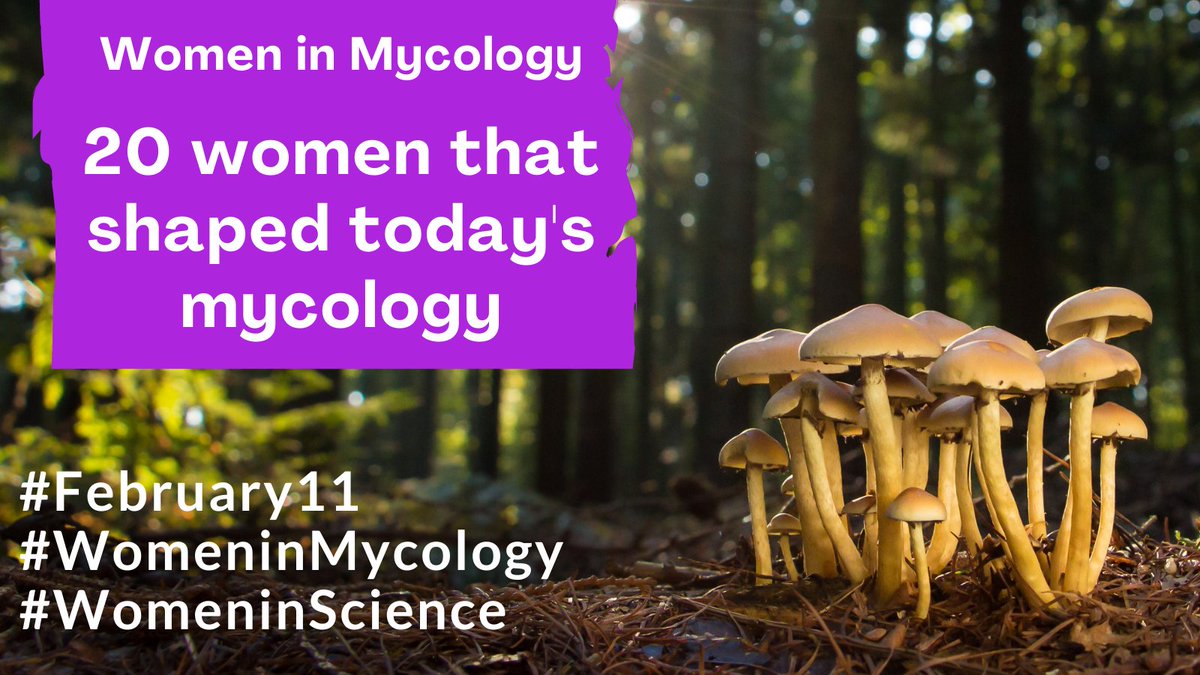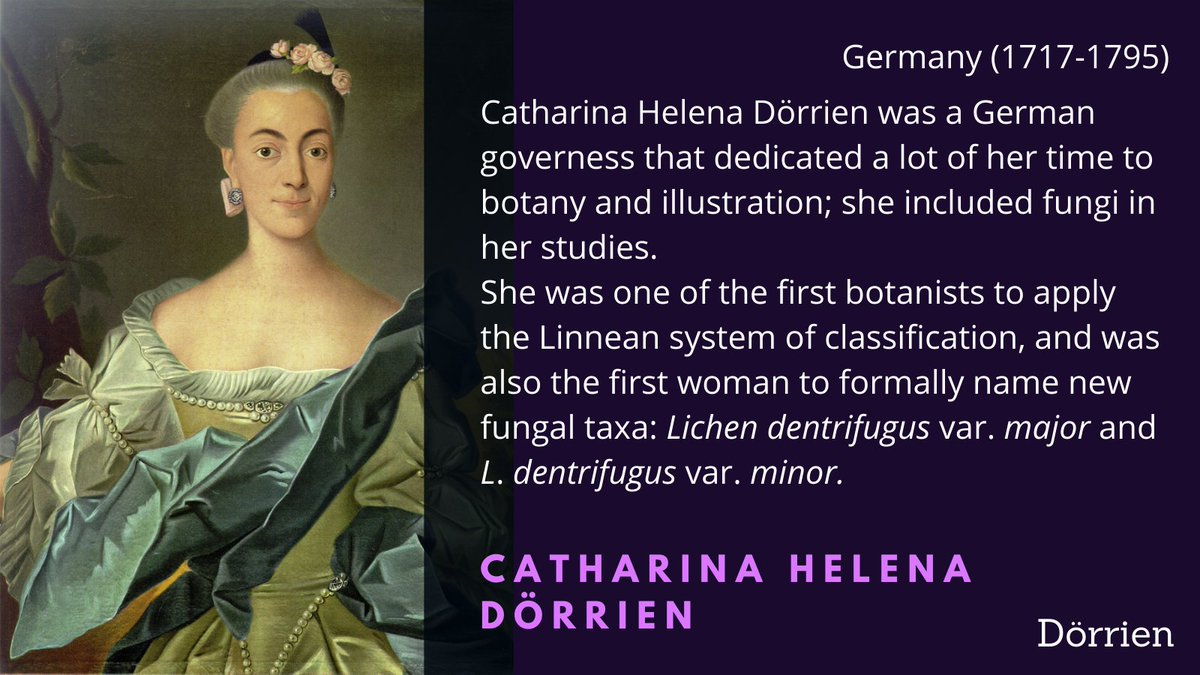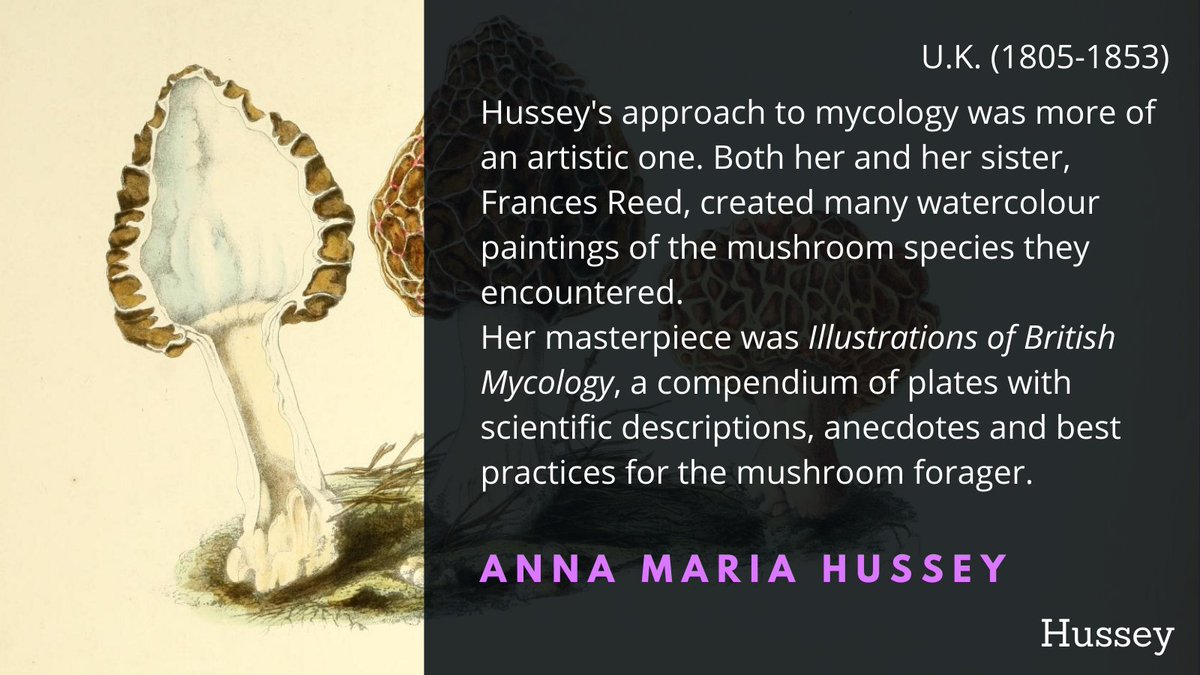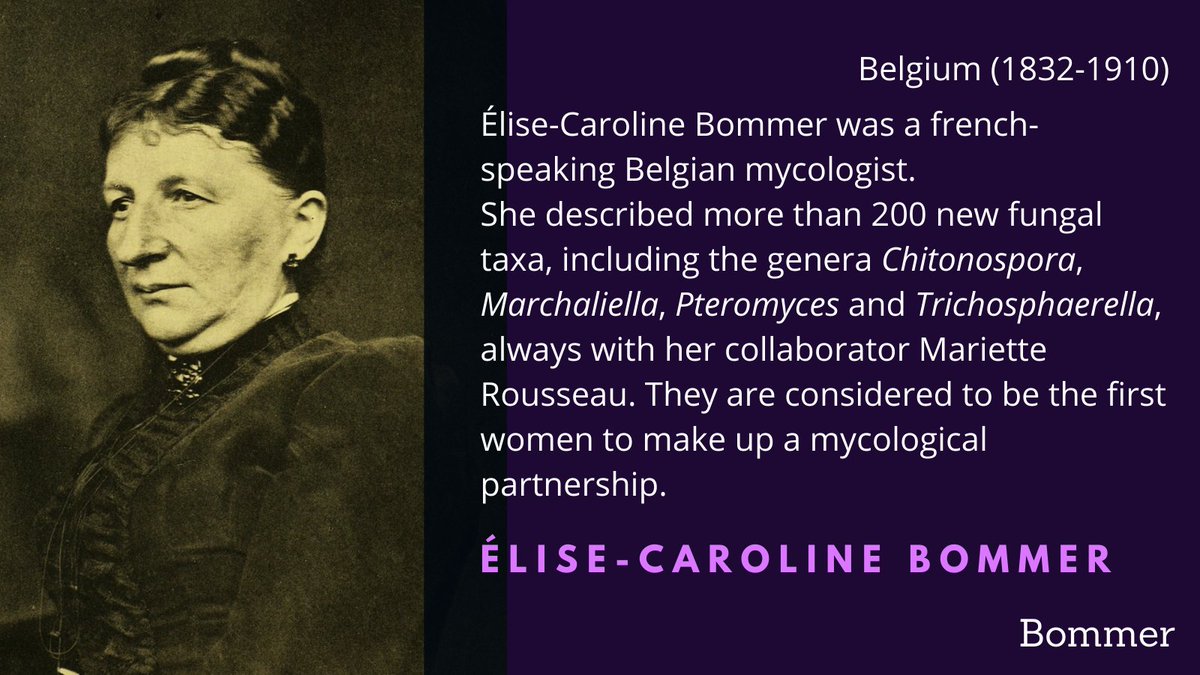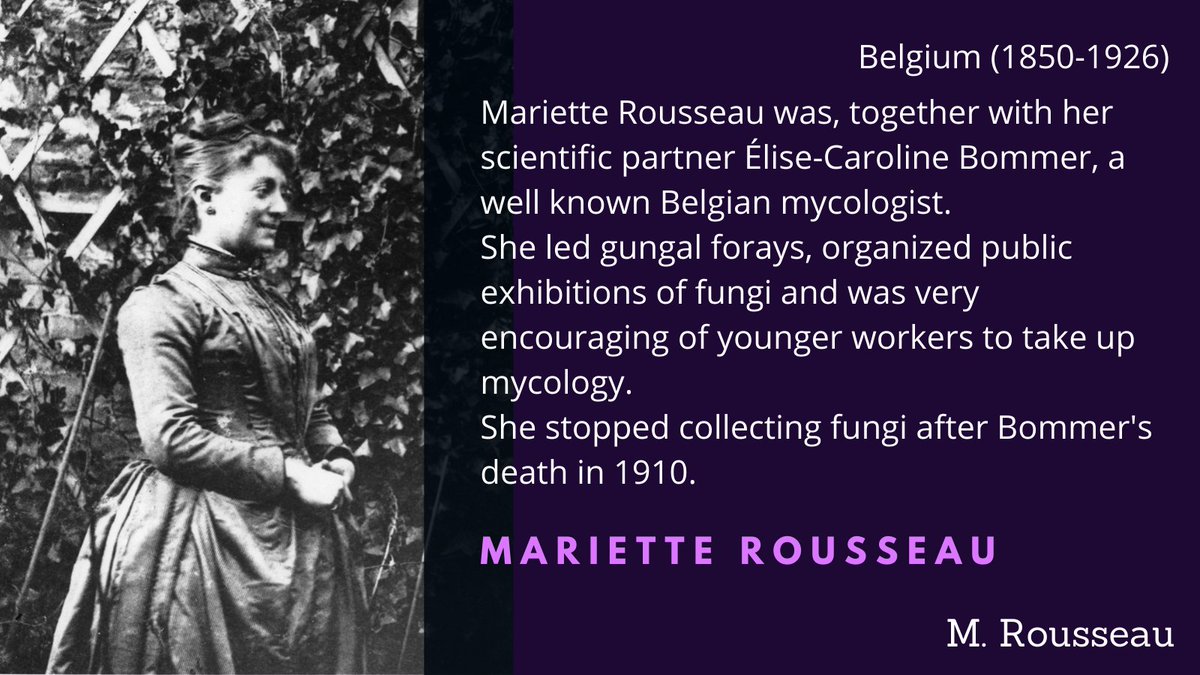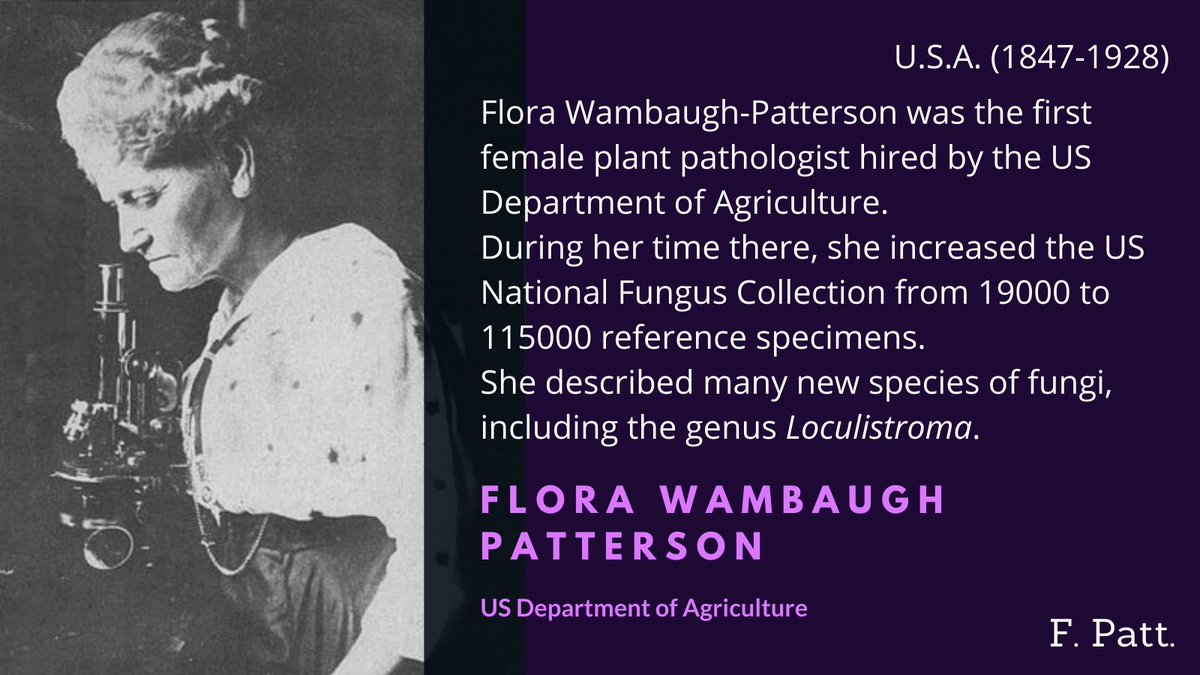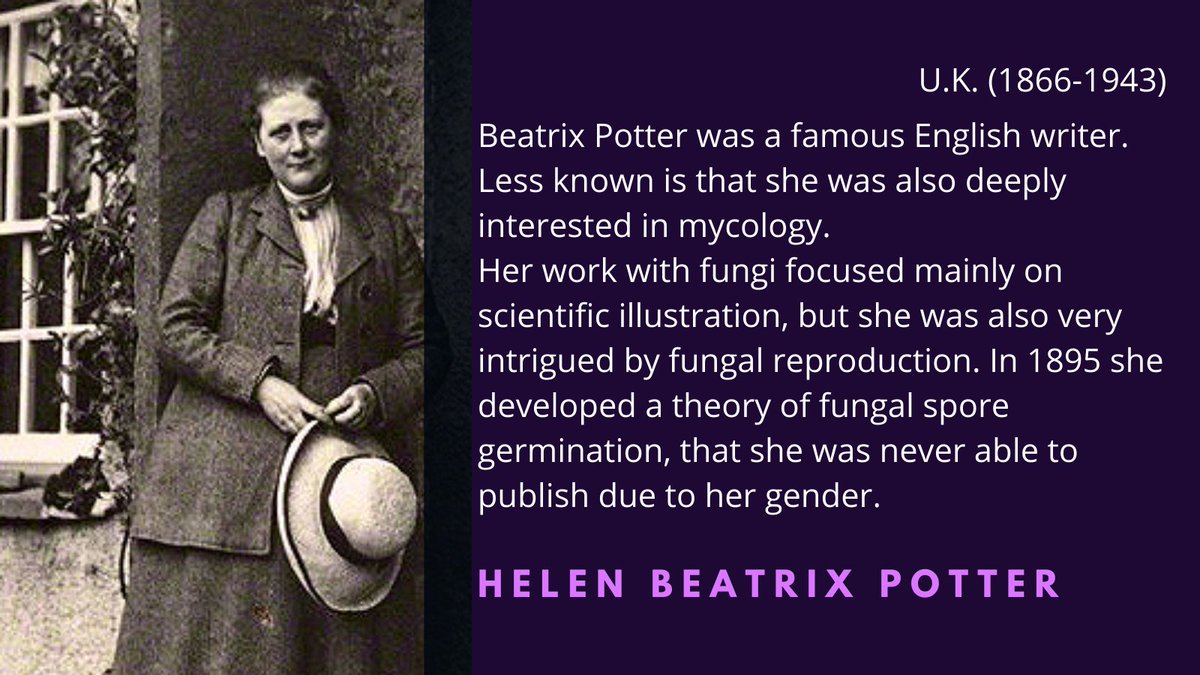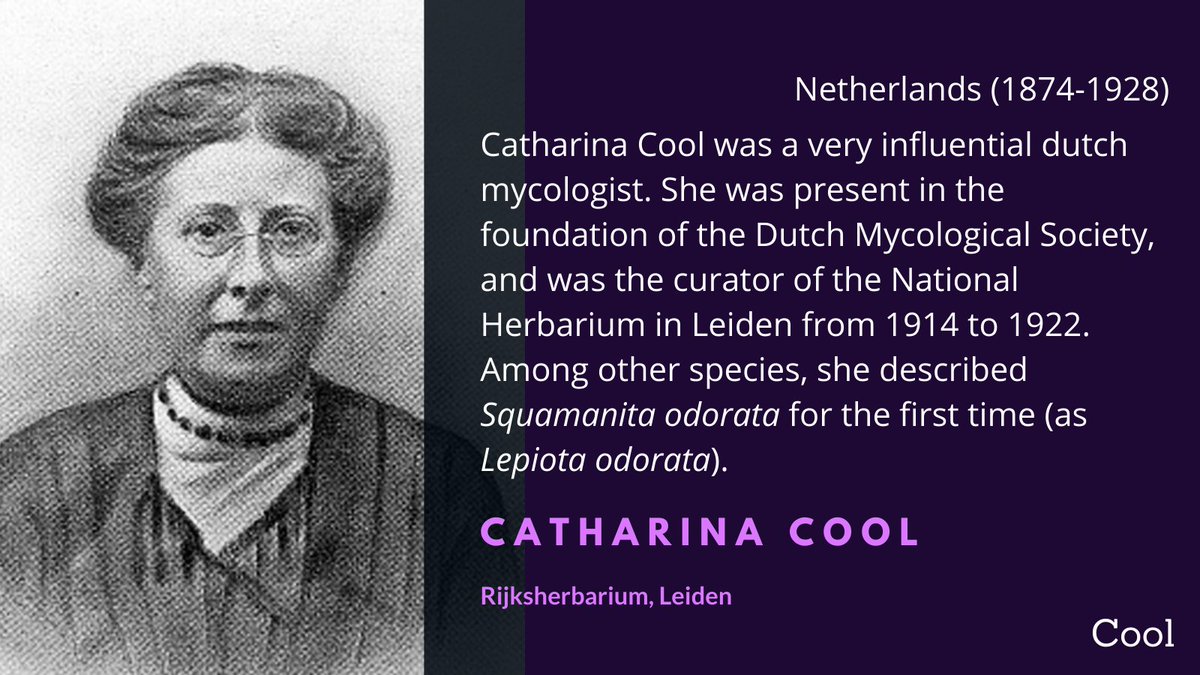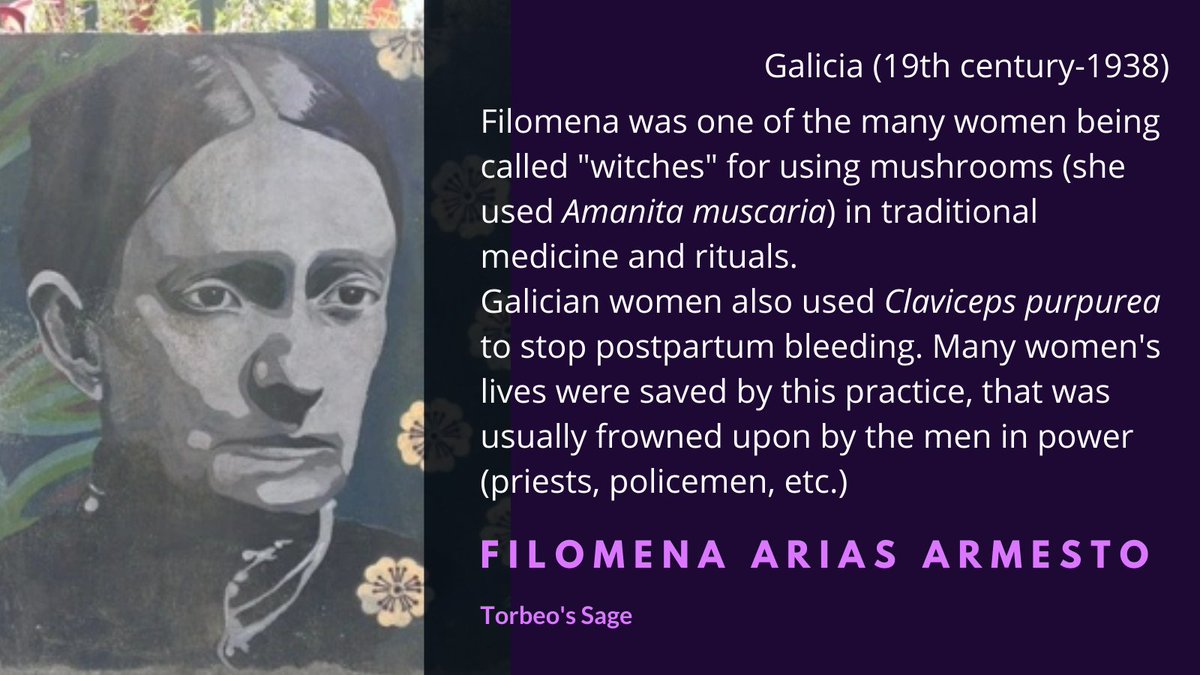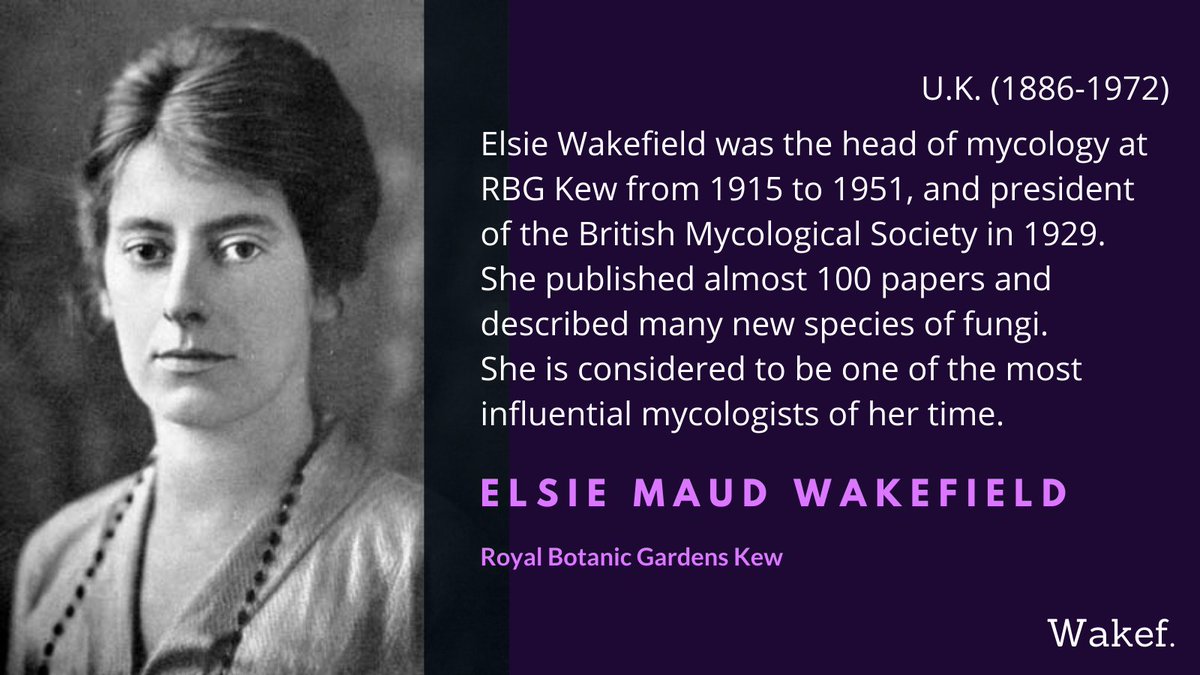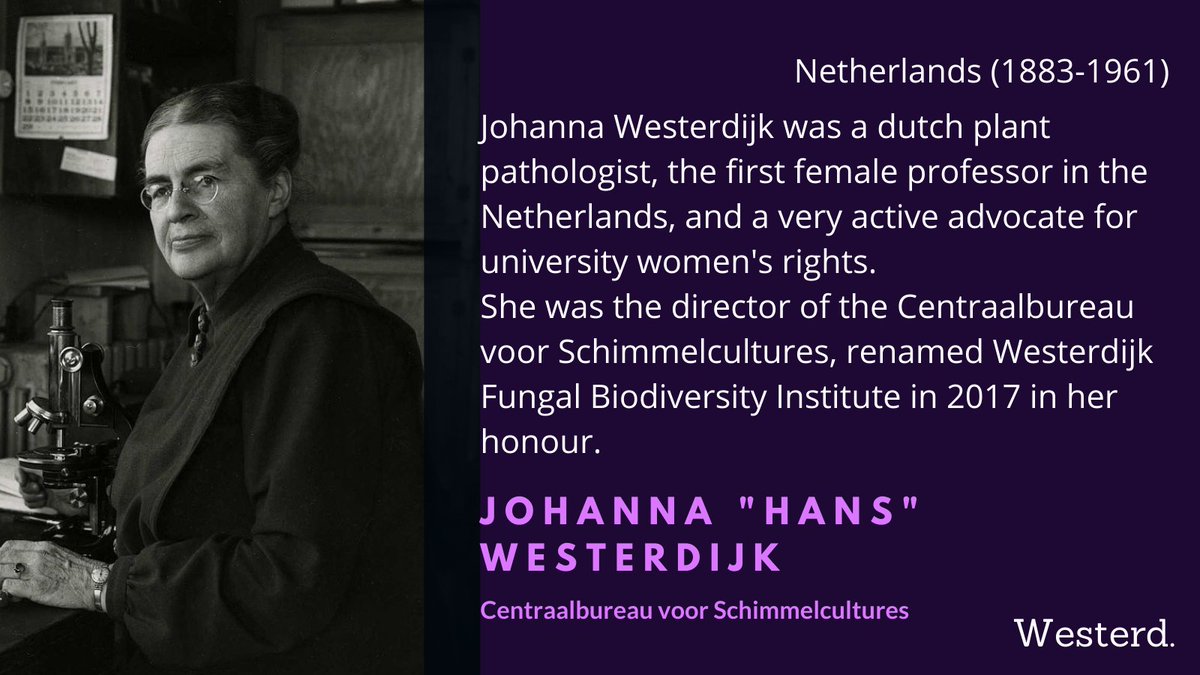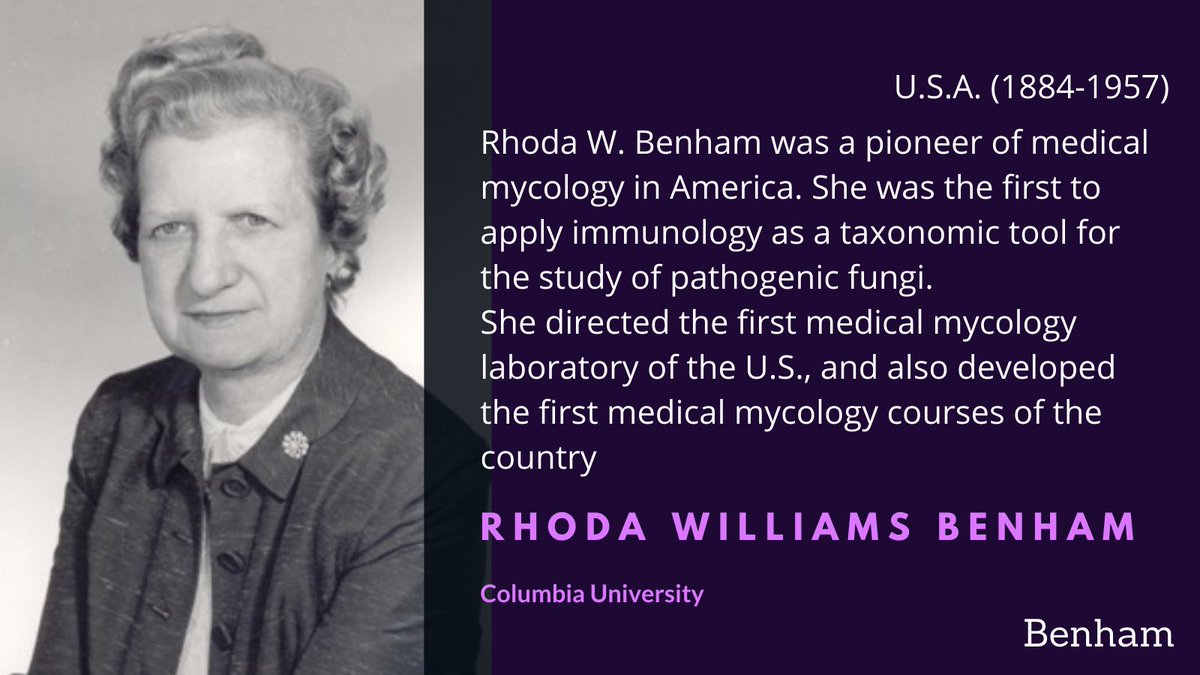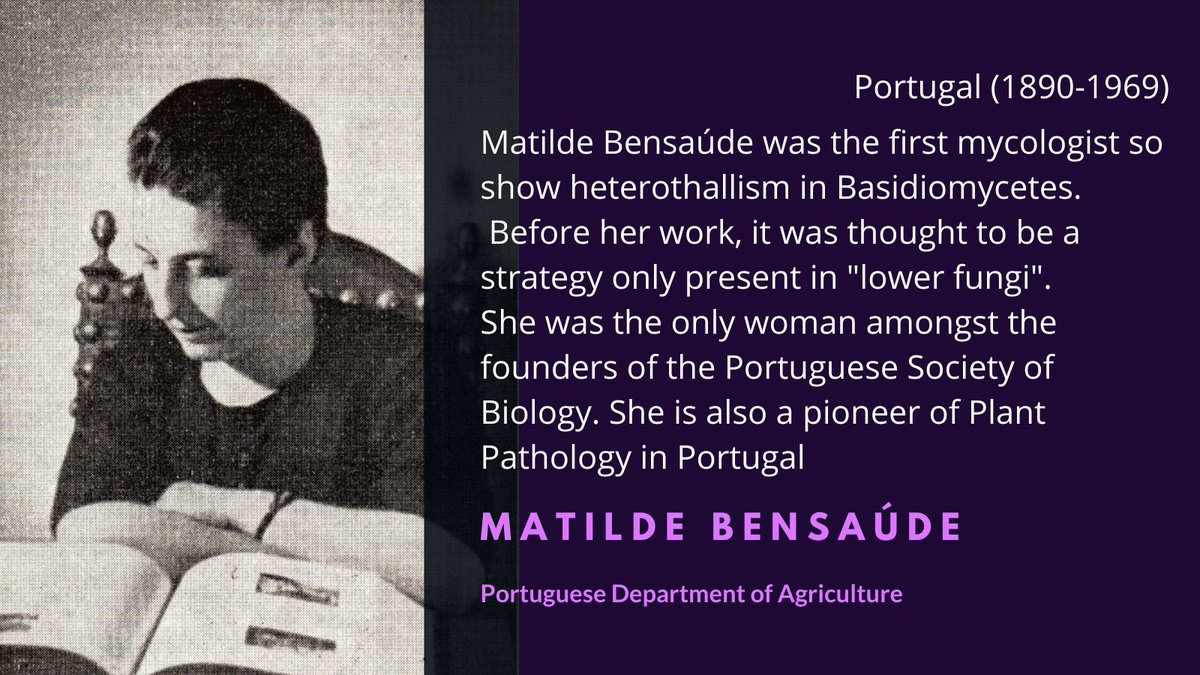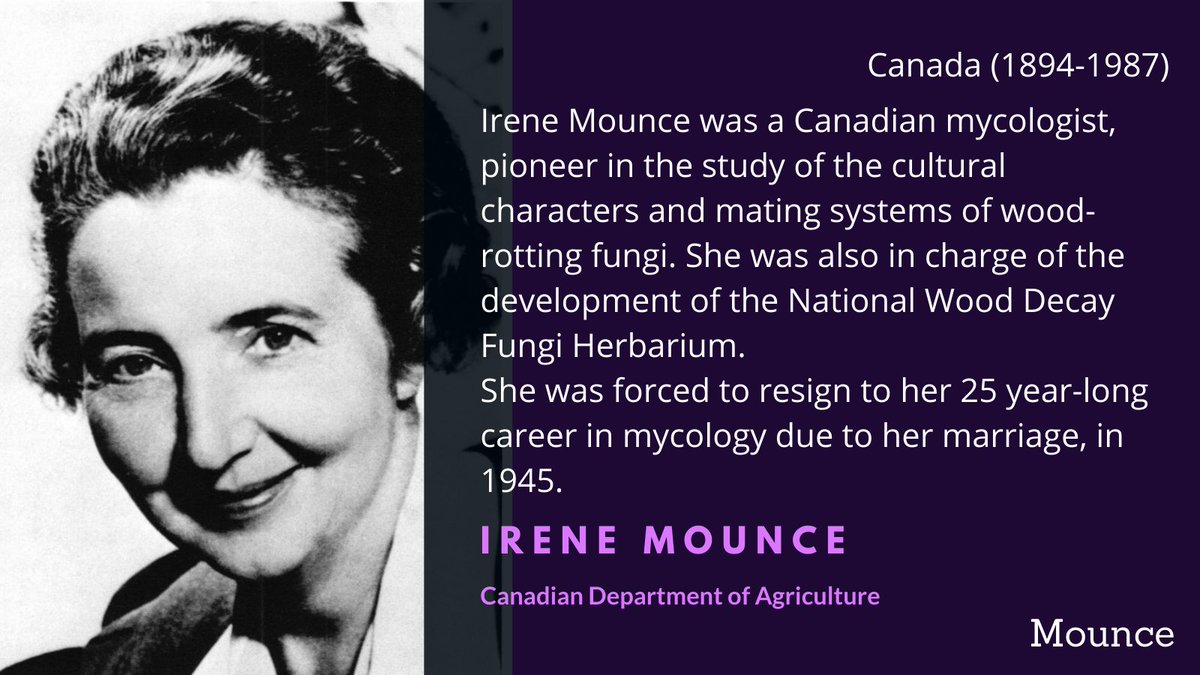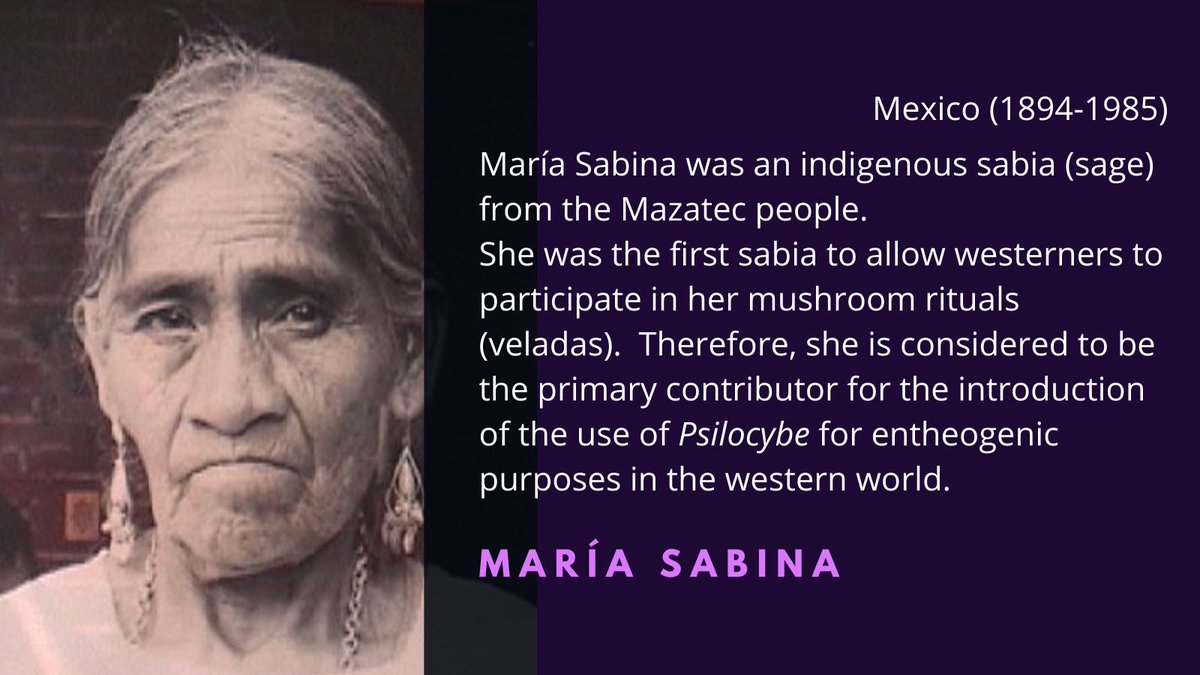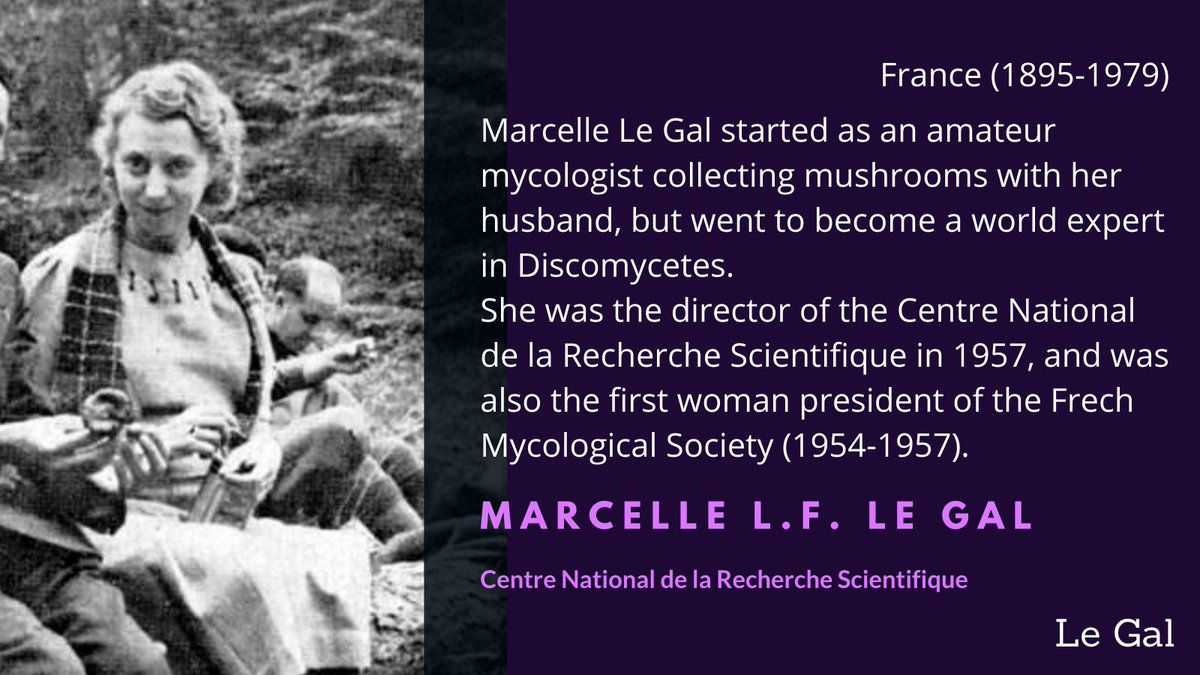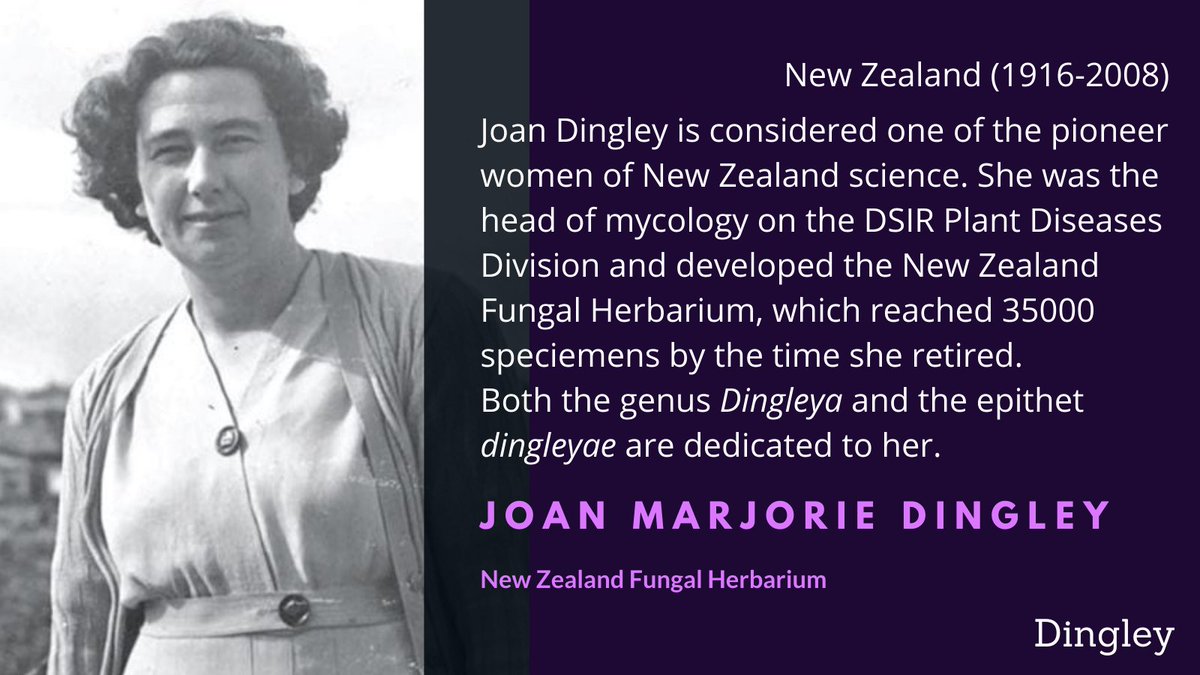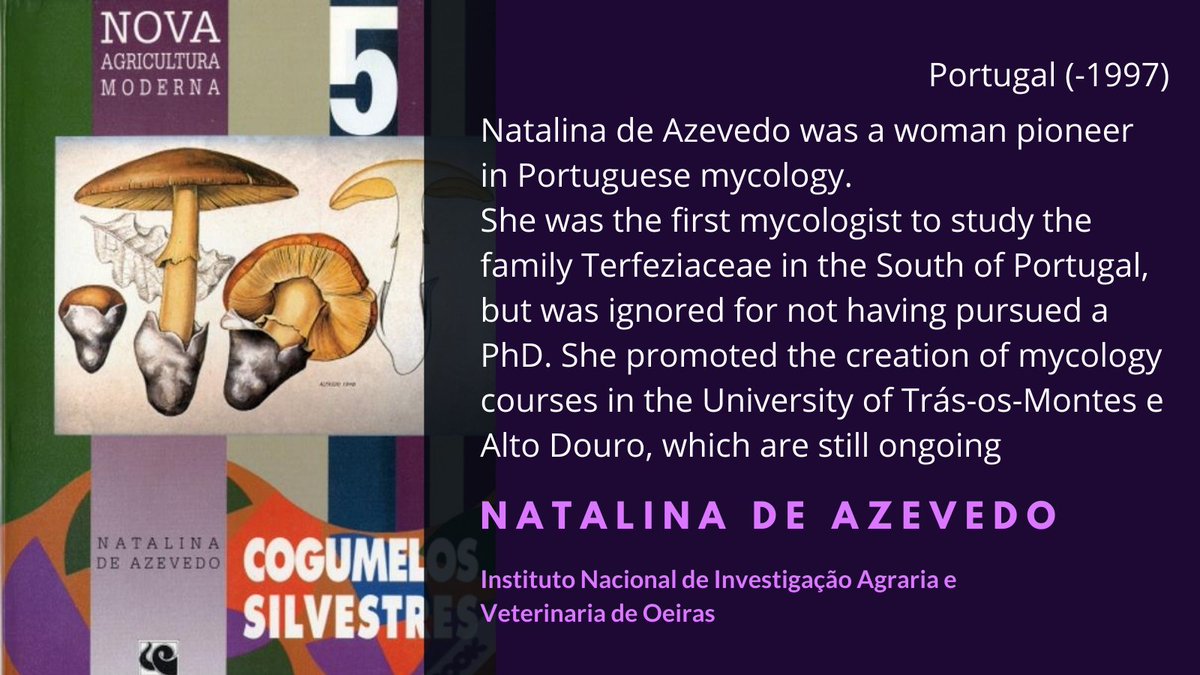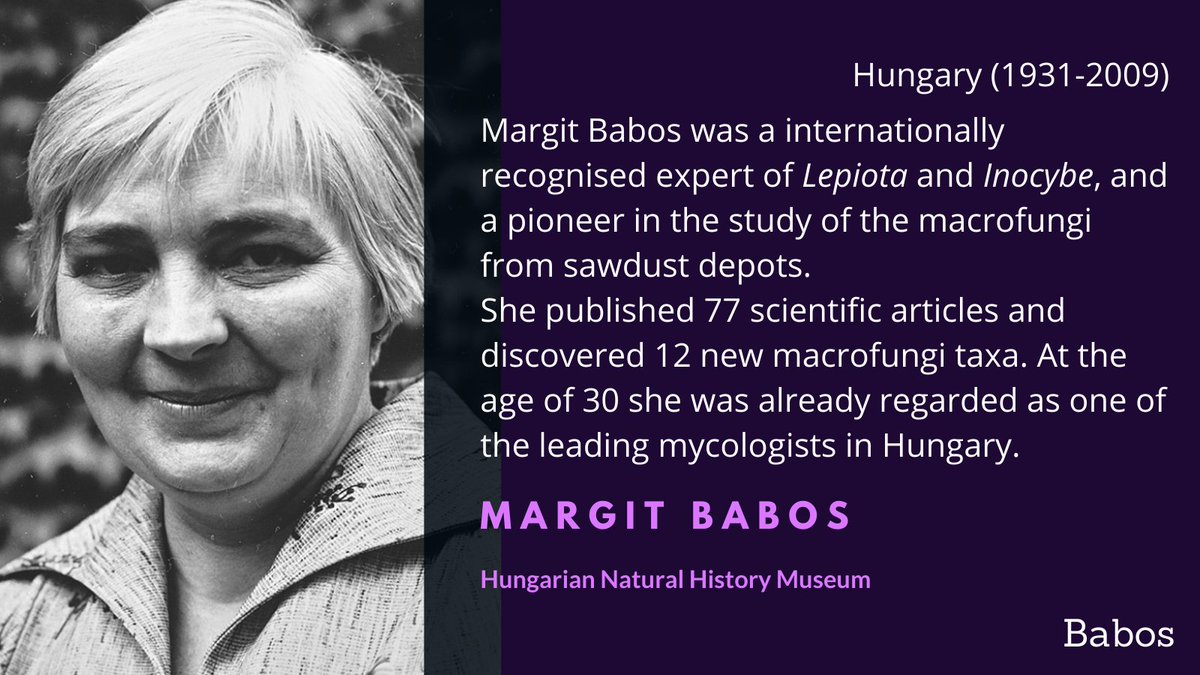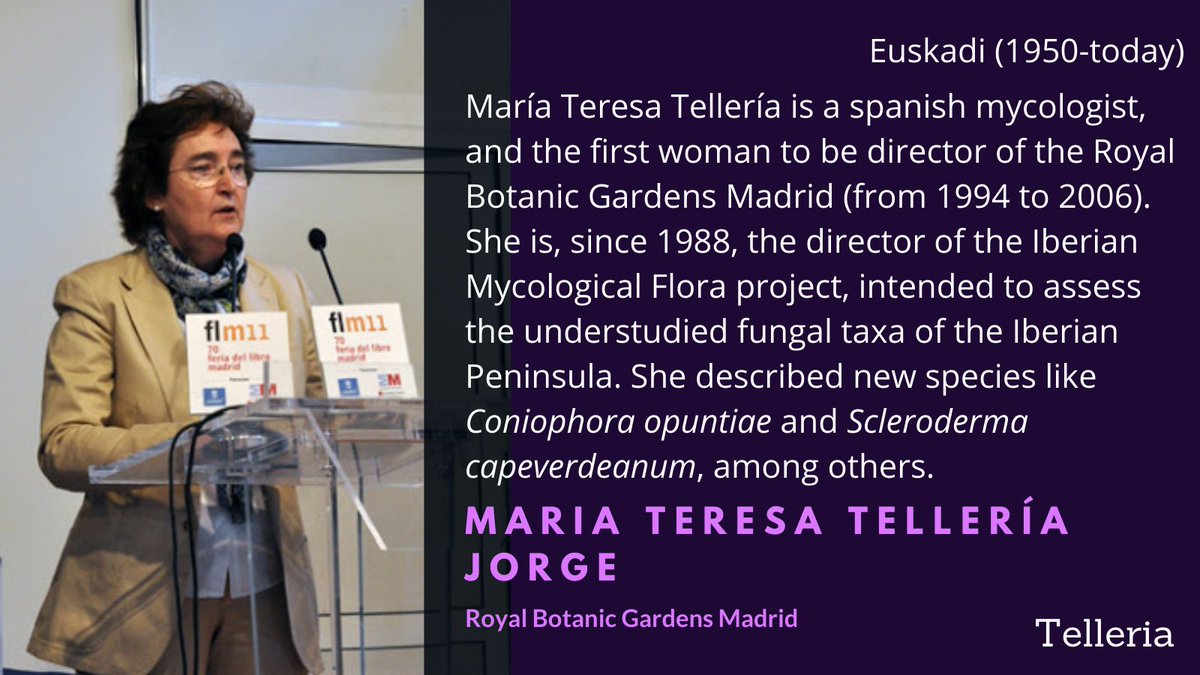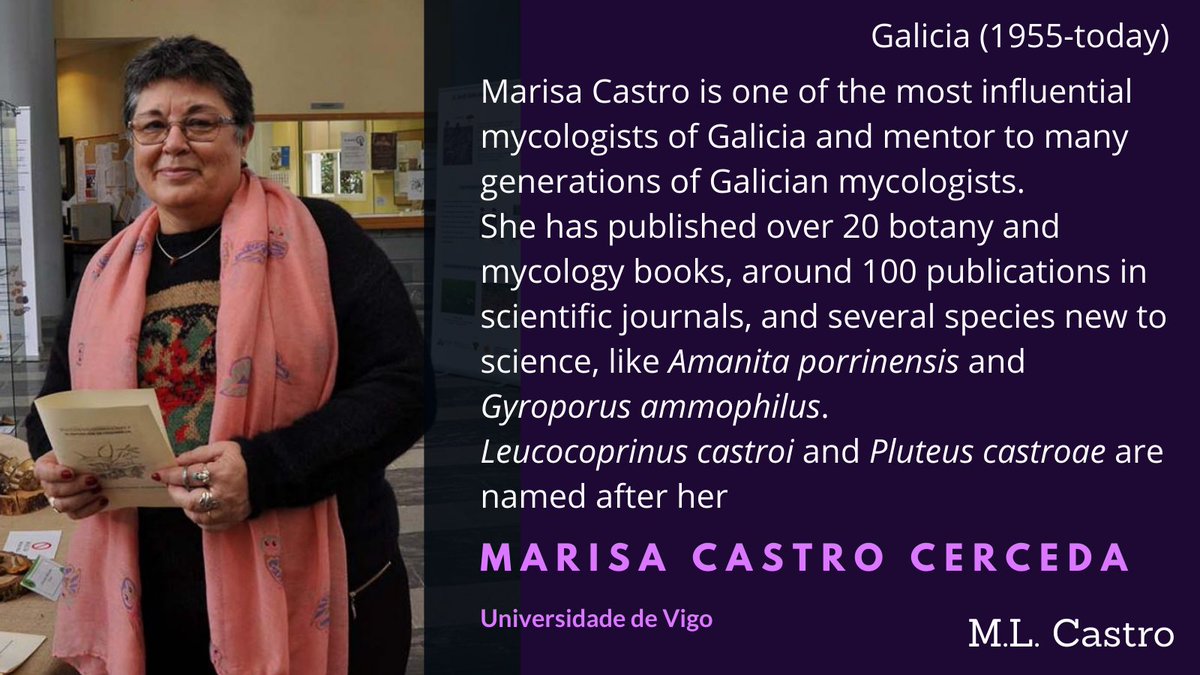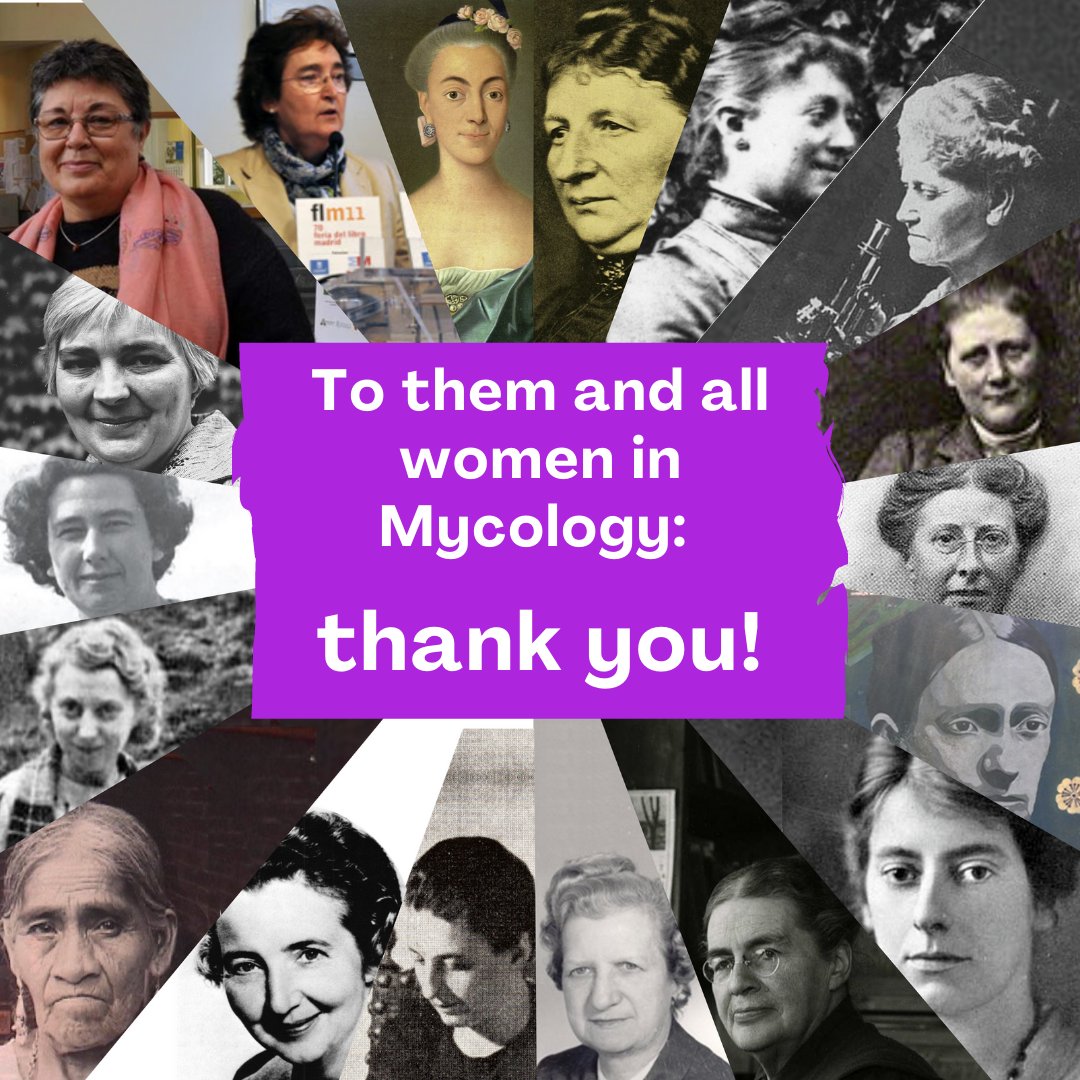This Thursday, Feb 11th, is the International Day of Women and Girls in Science. Women play and have played a vital role in shaping today's knowledge of fungi; here you have the stories of 20 of the hundreds of women mycologists we celebrate on #Feb11 #WomenInScience (thread)
First, Catharina Helena Dörrien, the first woman to describe fungal taxa using the Linnean system of classification that we still use today #February11 #WomenInScience
Anna Maria Hussey and her sister, Frances Reed, were the authors of many incredible scientific illustrations of common UK mushrooms. Sadly, their work was often published without crediting them #WomenInScience
Élise-Caroline Bommer, together with her myco-partner Mariette Rousseau, was one of the pioneer women of Belgian mycology #WomenInScience
Mariette Rousseau was Bommer's myco-partner, and an important promoter of amateur mycology in Belgium, organising forays and exhibitions. When Bommer died in 1910, she stopped collecting fungi and started managing their botanical collection #WomenInScience
Flora Wambaugh-Patterson was one of the pioneers of women in mycology in the US. Under her direction, the US National Fungus Collection grew radically; she described many new phytopathogenic fungi while working in the Department of Agriculture, too #WomenInScience
The English writer Beatrix Potter, author of "The Tale of Peter Rabbit", was also an incredible mycological illustrator. In 1997, the Linnean Society issued an apology post-obit to Potter, for the gender-based discrimination she suffered #WomenInScience
Catharina Cool's name lives on today in the Netherlands Mycological Society's journal name: Coolia. She was an important promoter of Dutch mycology, and curator of the Netherlands Mycological Society's Herbarium in Leiden #WomenInScience
@NedMycVer @Naturalis_Sci
@NedMycVer @Naturalis_Sci
Spetial mention to all the women who were called "witches" for using mushrooms in their traditional practices. One of them was Filomena Arias Armesto, a Galician woman better known as Torbeo's Sage; it is thought that she used Amanita muscaria on her rituals #WomenInScience
Elsie M. Wakefield was an world expert on the (now obsolete) order Aphyllophorales and had a particular interest in tropical fungi. She was awarded the Order of the British Empire in 1950 #WomenInScience @kewgardens @KewMycology @KewScience
Word has it that Johanna Westerdijk always refused to follow societal norms of what a "girl" or a "woman" was supposed to do. That rebellious nature led to her becoming the first female professor in the Netherlands in 1917 in Utrecht University #WomenInScience @_Westerdijk_
Rhoda Benham's was a pioneer of medical mycology in the US, and her contributions to the field were quite extensive. This led to the @MMSAmycology to name their annual awards for outstanding contributions to medical mycology after her #WomenInScience
Matilde Bensaúde was the discoverer of heterothallism in Basidiomycetes. She was an outstanding plant pathologist; she also founded a phytopathology research center in Açores to help the local pineapple farmers deal with plant pathogens #WomenInScience
Irene Mounce's mycology career was cut short when, in 1945, she was forced to resign to her laboratory job after getting married. Her extensive contributions to the knowledge of wood-decay fungi culture and mating systems are very relevant still #WomenInScience
María Sabina's story is quite tragic: born poor and in an abusive marriage, she was harassed by westerners that wanted to profit from her knowledge. Her veladas were rooted in spirituality, but the foreign people she invited to them were only looking for leisure #WomenInScience
Marcelle Le Gal was a very influential French mycologist and a world expert on Discomycetes. The epithets "legaliae" and "magaliae" are dedicated to her, as well as the genera Galiella and Marcelleina #WomenInScience
Joan Dingley was a world authority in Ascomycetes, with a particular interest in the Hypocreales. She also was awarded with the Order of the British Empire in 1995 #WomenInScience
Natalina de Azevedo is considered to be a pioneer in the creation of mycological relationships between Galiza and Northern Portugal. She was an key promoter of mycology courses around Portugal, which are still ongoing #WomenInScience @UTAD_RS
At the age of 20, Margit Babos joined the Hungarian National History Museum as a curator, and at age 30 she was already a lead mycologist in Eastern Europe. The epithet "babosiae" is dedicated to her #WomenInScience
@termtudmuz
@termtudmuz
María Teresa Tellería is still one of the biggest, most renowned spanish mycologists. She is the director of the Iberian Mycological Flora project, an ongoing effort to record and classify the extant Iberian Funga @RJBOTANICO #WomenInScience
Lastly, I couldn't have made it here without Marisa Castro, my mentor and many other's and a pioneer in Galician mycology. I'm extremelly grateful for all she has done for me, both in an academic and a personal level #WomenInScience @uvigo
Making this has been very illuminating. I knew women were my primary source of mycological training (I have nothing but good things to say about Marisa, but also about Jorinde Nuytinck, Laura Martinez-Suz and many other mycology teachers I've had), but (1/2)
I wasn't aware of the importance of women in the History of the field, even from its early stages when the society was way more misogynistic than it is today. If you made it this far into the thread, you have probably also realized that (2/3)
sadly, the discrimination this women (and many many others) suffered back in the day is still prevalent today. If nothing else, I hope this thread was informative and brought this women's stories to a broader audience. Making it was certainly enlightening #WomenInScience (3/3)
Many thanks to María Cabaleiro-Alfaya, Marisa Castro-Cerceda and Rob Hallock for the information provided to make this. Also: Ginns (1988), Vasas (2010), Garibay-Orijel et al. (2012) and Maroske & May (2018).

 Read on Twitter
Read on Twitter